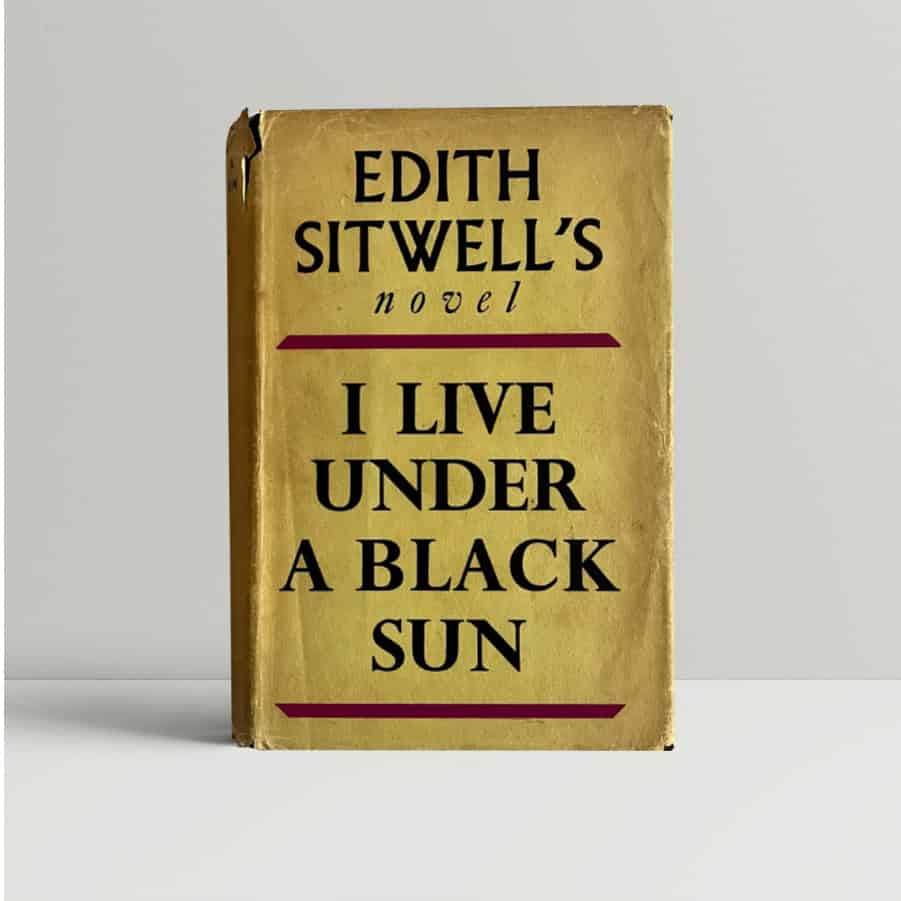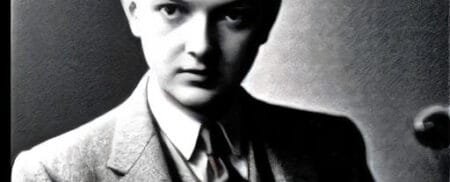English Eccentric: Dame Edith Sitwell
Edith Sitwell, a prominent English poet, critic, and eccentric figure of the 20th century, left an indelible mark on the literary landscape with her avant-garde poetry and distinctive persona. Born on September 7, 1887, into an aristocratic family with a rich cultural heritage, Sitwell’s life was marked by creativity, controversy, and an unyielding commitment to artistic expression. Sitwell grew up in a milieu steeped in art and literature. Surrounded by the intellectual luminaries of the time, including her brothers Osbert and Sacheverell Sitwell, she developed a keen interest in poetry from an early age.
Despite her privileged upbringing, Sitwell’s life was fraught with challenges, including her struggles with a rare spinal condition that caused her physical discomfort and social ostracism. Sitwell’s literary journey commenced with the publication of her first collection of poetry, “The Mother and Other Poems,” in 1915. Her early works were characterised by a rejection of conventional poetic forms and a bold exploration of themes such as death, alienation, and the human condition. Influenced by the modernist movement and her encounters with avant-garde artists like Pablo Picasso and Igor Stravinsky, Sitwell’s poetry defied traditional norms, embracing experimentation and innovation. It was Sitwell’s landmark work, “Facade,” published in 1922, that catapulted her into the literary limelight. A collaborative effort with composer William Walton, “Facade” combined Sitwell’s whimsical poetry with Walton’s lively musical score, creating a multimedia spectacle that enraptured audiences. The work’s unconventional blend of spoken word and music, coupled with Sitwell’s eccentric performance style, captivated audiences and cemented her reputation as a trailblazing avant-garde poet. Sitwell’s literary endeavours were not confined to poetry alone. She was also a prolific critic and editor, championing emerging talent and advocating for innovative artistic expression. As the editor of the literary magazine “Wheels,” Sitwell provided a platform for avant-garde writers and artists, including Dylan Thomas and Salvador Dalí, to showcase their work and challenge the status quo. Despite her literary acclaim, Sitwell’s personal life was marked by tumultuous relationships and periods of financial instability. Her unconventional appearance and flamboyant demeanour often drew attention and criticism from society’s conservative elements.
However, Sitwell remained steadfast in her commitment to artistic integrity, refusing to compromise her creative vision for societal approval. Sitwell’s later years were reclusive, as she retreated from the public eye and focused on her writing. Her poetry during this period reflected themes of introspection, mortality, and the passage of time, showcasing a depth of emotion and wisdom gleaned from a lifetime of artistic exploration. Edith Sitwell’s legacy endures as a testament to the power of individuality and artistic courage. Through her pioneering poetry and unapologetic embrace of eccentricity, she challenged the conventions of her time and paved the way for future generations of avant-garde artists. As a trailblazer of the modernist movement, Sitwell’s influence reverberates through the corridors of literary history, inspiring poets and creatives to dare to defy the constraints of tradition and forge their own path.
Find our stock of Dame Edith Sitwell’s work here
To find out more about this great English Eccentric, click here





